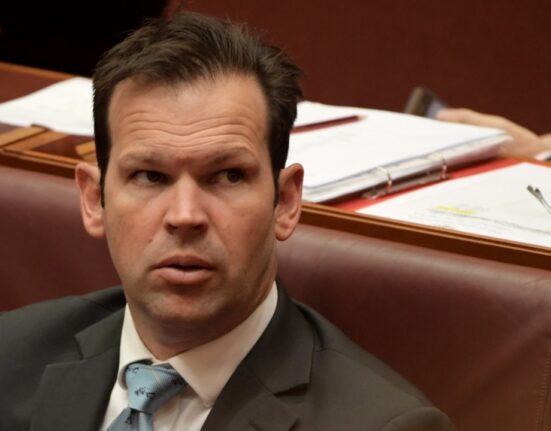Adam Bandt, the leader of the Greens, stood firm at the National Press Club, challenging Prime Minister Anthony Albanese’s dismissal of potential collaborations between Labor and his party in a hung parliament scenario. With a tone of determination, Bandt emphasized that cooperation was essential in honoring the Australian people’s choices when it comes to governance.
Bandt’s Assertion:
Bandt stated unequivocally: “If he can convince 51 per cent of the population to vote for him, then OK. But that’s not what’s happening … that’s not what he did last time.” The call for inclusivity reverberated as he highlighted the increasing desire for diverse voices on the political stage.
In outlining their objectives, Bandt pinpointed critical policy reforms that would be non-negotiable if they were to enter into discussions post-election. Central to their agenda was preventing Peter Dutton from ascending to power and advocating for progressive policies such as integrating dental care into Medicare and halting coal and gas projects.
Expert Analysis:
Political analysts viewed Bandt’s strategic positioning as an attempt to leverage public sentiment towards environmental concerns and socio-economic equality. By emphasizing housing affordability through proposed changes to negative gearing and capital gains tax discounts, Bandt aimed to resonate with younger generations facing barriers to property ownership.
Proposed Policy Changes:
The Greens’ proposal encompassed comprehensive reforms targeting wealth inequality in property investment. Their plan sought to curtail exploitative practices by affluent investors while creating pathways for aspiring homeowners burdened by inflated prices in competitive markets.
Bandt highlighted how existing fiscal policies favored wealthy investors at the expense of first-time buyers, illustrating a pressing need for regulatory interventions. Through rent freezes and stricter controls on landlords’ pricing autonomy, the Greens positioned themselves as advocates for equitable rental market dynamics.
Historical Context:
As discussions unfolded regarding renegotiating Australia’s alliance with the US under ANZUS – a significant security pact established during the Cold War era – Bandt delved into foreign policy implications tied to aligning with American military ventures. His critique underscored broader debates on sovereignty and independent decision-making in international affairs.
Albanese’s Response:
Prime Minister Albanese downplayed Bandt’s assertions, reaffirming Labour’s focus on securing a majority government without reliance on coalition arrangements with minor parties like the Greens. While acknowledging differing priorities between mainstream parties and smaller factions, Albanese reiterated his commitment to consolidating Labour’s parliamentary standing.
Amidst electoral campaigns and ideological clashes within Australia’s political landscape, Bandt emerged as a vocal proponent of systemic change geared towards social welfare enhancements and environmental sustainability measures. The tussle between traditional party frameworks and insurgent platforms showcased evolving voter preferences seeking nuanced policy responses.








Leave feedback about this